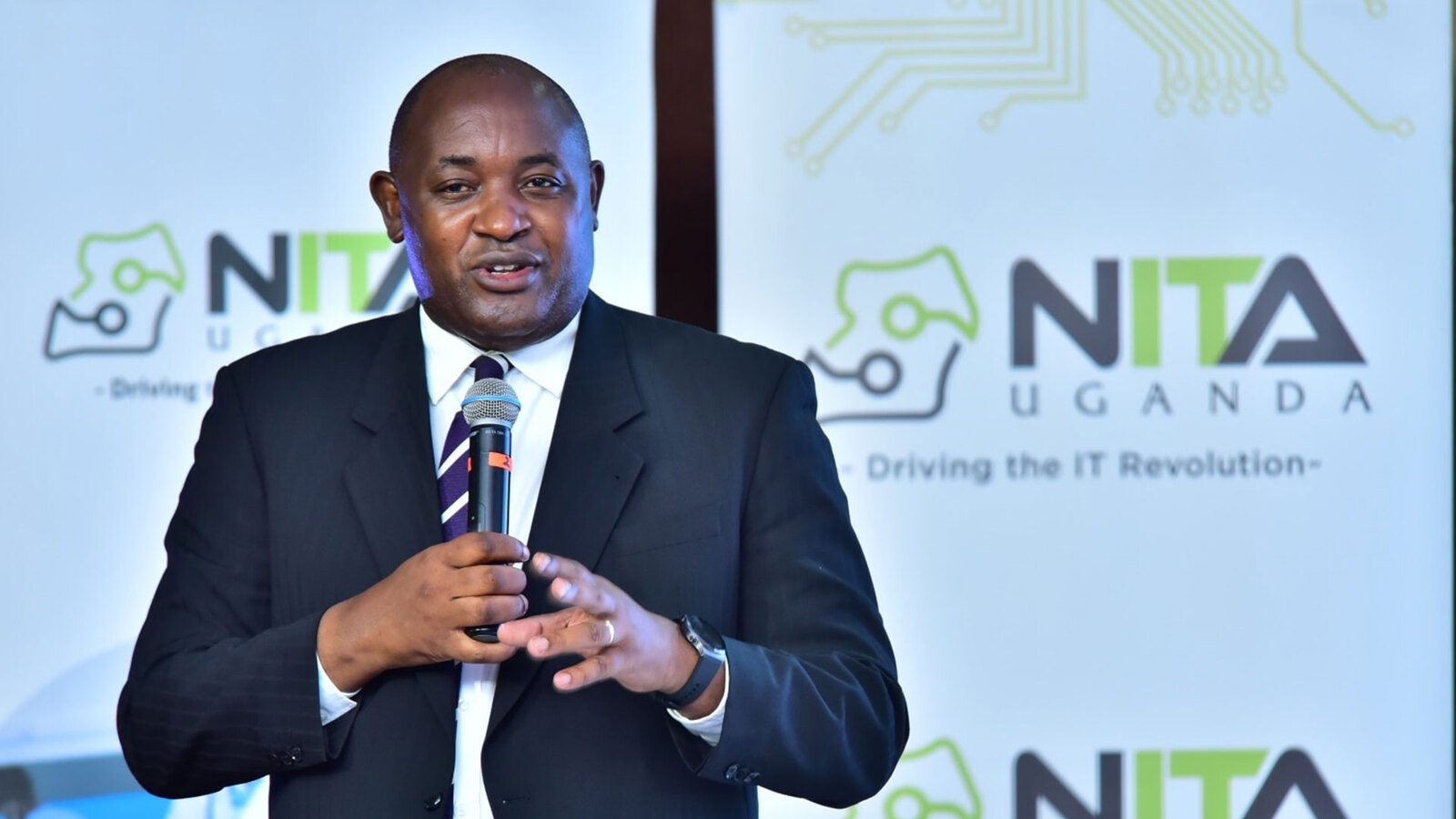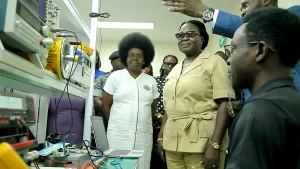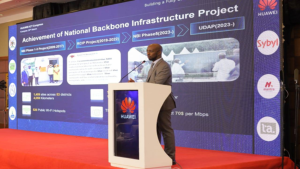Share
Through a loan obtained from the Exim Bank of China, the government intends to provide internet connectivity to every sub-county, according to plans announced by Hon. Chris Baryomunsi, Minister for Information, Communication, Technology, and National Guidance.
According to Baryomunsi, the government would use the $150 million to connect all sub-counties to the National Backbone Infrastructure (NBI), going beyond its ministries, departments, agencies (MDAs), and district offices.
This is essential to guaranteeing that the digital economy benefits every region. To provide complete access to e-Government services, last mile connectivity—the last segment that connects the NBI to end users—is crucial, according to Baryomunsi.
This information was revealed by Baryomunsi during a statement he gave about the ministry’s two projects, which are intended to speed up electronic systems in government agencies and increase internet connectivity by building optical fiber cables.
Speaker Anita Among presided over this House session on Tuesday, November 26, 2024.
The World Bank has provided US$200 million for the Uganda Digital Acceleration Project (UDAP) in 2022, of which US$60 million is a grant. In contrast, the Exim Bank of China has provided US$150 million for Phase V of the National Backbone Infrastructure (NBI) project, which will be put into service in 2023.
In order to provide high-speed internet to 1,567 MDAs, hospitals, districts, and other target groups, the government has so far installed 4,298.87 kilometers of optical fiber cable with the National Backbone Infrastructure, Baryomunsi said MPs.
The government intends to construct 21 transmission facilities, expand last mile connection to 2,800 locations nationwide, and extend optical fiber cable to an additional 63 districts as part of the UDAP Project.
The Minister expressed pride in the expanded availability of electronic government services, including the Parish Development Model Online system (PDMIS), the Health Management Information System (HMIS), the Education Management Information System (EDMIS), the Integrated Financial Management Services (IFMS), the e-government Procurement system (e-GP), the e-Passport, the e-visa, and the e-Passport.
“The use and adoption of e-services in government has grown significantly, improving public service delivery to citizens and increasing government efficiency.” Additional economies of scale will help us lower the price of internet bandwidth, Baryomunsi stated.
According to information obtained by Parliament, at least ten of Uganda’s main borders with its neighbors have been connected to improve access to services including immigration, customs clearance, and e-Visa applications, which have facilitated communication.
MPs questioned the need for the more than 800 Wi-Fi hotspots planned and voiced worries that some of the 300 hotspots mentioned in the minister’s statement are inaccessible.
According to Hon. Helen Nakimuli, the Kalangala District Woman MP, “I want the minister to look for MyUg Wi-Fi hotspot and see if it connects; it is not working yet, but it is one of the hotspots meant to serve urban centers.”
The government’s intentions to expand internet infrastructure to the island areas, which she claimed now had poor networks, were praised by Nakimuli.
In order to guarantee that the installation of internet cables and masts is cogent, she requested that the government guarantee coordination between the ministries responsible for road building and ICT.
The minister was asked to think about monitoring the effects of the two projects by Hon. Dickens Kateshumba (Indep., Sheema Municipality), who stated that among other development indicators, greater internet access should result in higher production.
“You mentioned that 47% of one of your loans has been spent, although the majority of your statement is related to a procurement transaction. The impact on accessibility, affordability, and the advantages that the loans were predicated on would be of interest to us as Parliament, Kateshumba stated.












